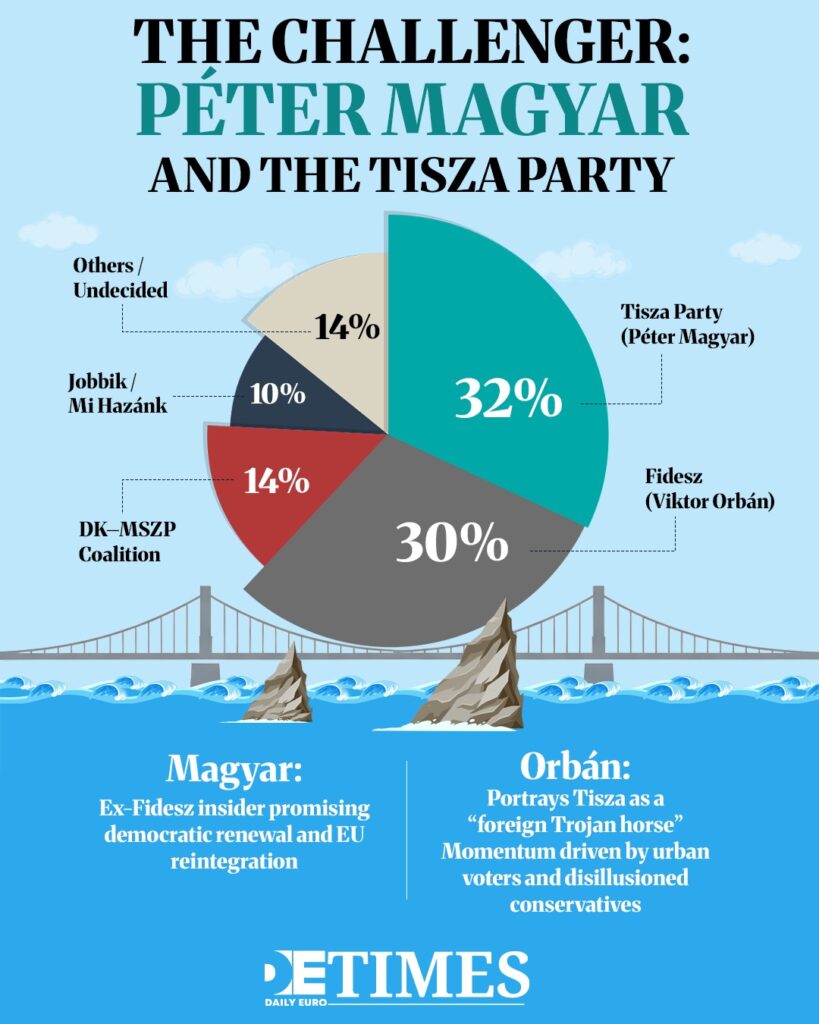When it comes to modern Hungary, the name Viktor Orbán usually evokes strong emotions — either from devoted admirers or harsh critics.
However, today his power is at stake. Can the “national leader” maintain his grip on power amid growing domestic fatigue and active opposition? Only time will tell as Hungarians head to the polls in spring next year.
Political Fatigue and “Information Autocracy”
Orbán has been at the pinnacle of Hungarian politics since 2010.
He has built a system that many analysts call “information autocracy”: control of the media, legislative manipulation, and a narrowing of the space for independent criticism. However, even the most robust “regime” can show cracks.
Polls are showing growing sentiments of "Orbán fatigue" even in his traditional electoral bases, including rural regions where Fidesz support previously dominated.
The key challenge for Orbán is not only external opposition, but also internal frustration as residents feel that everyday issues (rising prices, corruption, inefficiency) are ignored or masked by populist rhetoric.

A New Rival: Péter Magyar and the Tisza Party
The opposition’s main hope has become Péter Magyar, a former Fidesz member who founded the Tisza movement.
According to polls, he is considered the most principled and credible challenge to Orbán in the past 15 years. Polls indicate that Tisza could overtake Fidesz in the spring 2026 elections, especially if the opposition unites and concentrates their resources on a single candidate.
Tisza is pro-European and seeks to restore democracy, but it is not a radical left or right movement. Rather, it is a centre or moderate alternative to Orbán. However, Orbán is trying to discredit Magyar by linking him to Kyiv and foreign interests, portraying him as a “Trojan horse”; a neoliberal of Brussels in a conservatives’ clothing.
External and Institutional Constraints
Even if the opposition unites and gains significant electoral strength, Orbán enjoys the advantage of institutional control. Fidesz wields legislative power, controls budgets, and uses social benefits (pensions, subsidies, tax breaks) as political leverage.
Orbán is no stranger to aggressive rhetoric and is a master of narratives: “enemies of the people,” “liberal elite,” “external threats.” His control over the media and state institutions allows him to amplify the impact of such narratives in a Trumpian manner.
Orbán is facing increasing criticism from Europe and his international partners, particularly for delaying reforms, violating minority rights, and resisting rapprochement with the EU. But he still has room to maneuver geopolitically: pragmatic ties with Russia and China, as well as the rhetoric of “independence,” allow him to counter Brussels’ restrictions.
His long reign was sustained by a combination of populist magic and institutional control. Now he faces his gravest test: if he loses the battle for narrative, trust, and economic prosperity, his era could be over.
The only question is whether the opposition has the fortitude and strength to seize this moment.
Read the Latest Articles on DET!
Airbus’ Edge on Boeing is Innovation, Not Government Support
America First? TikTok Gives Control to Israeli Tech Company
Oktoberfest: A Festival Without the Fest-ivities





